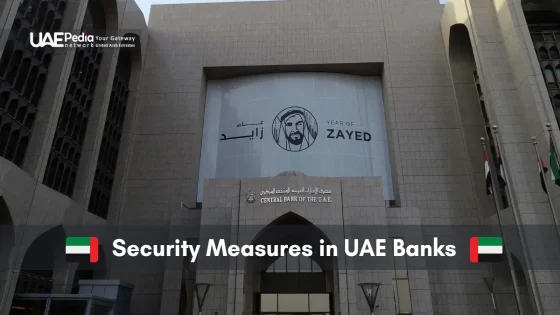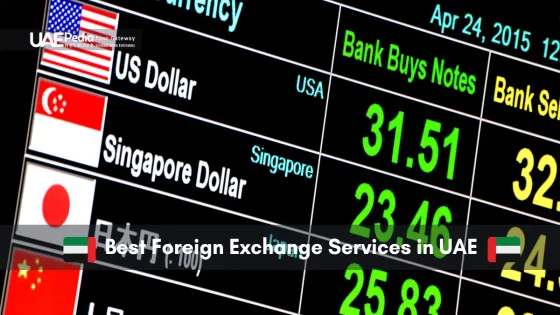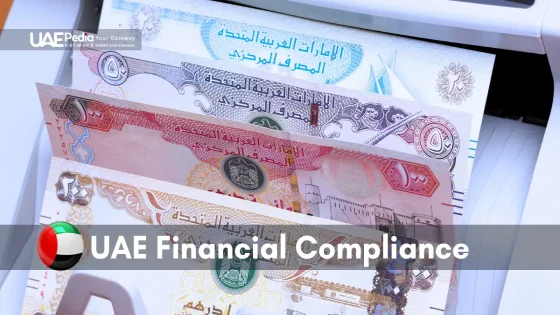UAE banks confront escalating cyber threats while pioneering advanced security frameworks. Cybercrime is growing, and UAE banks are fighting back. Non-compliance with recent regulations may incur penalties exceeding $800,000 (AED 3 million) and criminal liability for executives. This has made banks in the UAE very serious about security.
UAE banks are using new tech to stay safe. They use AI to spot fraud and blockchain for secure transactions. They are leading the way in bank security UAE. The UAE Central Bank is very strict about bank security. They have made new rules to protect our money. These mandates establish comprehensive safeguards for financial assets and data integrity.
But there’s more! UAE banks adhere to both domestic regulations and extraterritorial frameworks like GDPR for EU customer data. They make sure all customers’ data is safe. Safeguarding financial assets and sensitive data requires continuous, resource-intensive investment.
UAE banks face implementation constraints as they must comply with both local and European regulations, particularly in data protection and AML, which requires significant resources and effort to ensure compliance across jurisdictions. Ref.: “Lexology, ‘A general introduction to the banking regulatory regime in United Arab Emirates’, May 12, 2022.” [!]
UAE Banking Regulatory Framework and Compliance Standards
The UAE’s banking sector follows strict rules to keep things safe and in line. These rules help make sure banks are secure and follow the law.
PDPL: UAE’s Landmark Data Protection Mandate
The PDPL is like the EU’s GDPR but for the UAE. It helps people control their personal data. It’s important for banks to follow this law, especially when dealing with EU customers.
Central Bank Security Guidelines
The UAE Central Bank has strict rules for banks. These rules help banks manage risks and respond to cyber attacks. Islamic banks also have special rules for managing money and keeping enough capital.
International Compliance Requirements
UAE banks must follow global rules like AML and KYC. The Federal Law No. 20 of 2018 sets out AML rules in the UAE. Not following these rules can lead to big fines and legal trouble.
| Regulation | Key Points | Penalties for Non-Compliance |
|---|---|---|
| AML/CFT Regulations | Supervised by Central Bank of UAE | Fines up to AED 5 million, imprisonment |
| Corporate Compliance | Proper accounting records required | Fines up to AED 50,000 |
| Finance Companies Regulation | Covers BNPL schemes, credit limits | License revocation, fines |
These rules are key for the UAE’s banking and finance sector. They help keep things safe and build trust in the UAE Business world.
Bank Security UAE: Advanced Technology Integration
UAE banks are becoming tech leaders! They use new tech to keep your money safe and make banking easy. Let’s explore the exciting world of bank security in the UAE.
Real-Time Fraud Prevention with AI Analytics
AI-powered systems continuously monitor transactions, identifying anomalous patterns in real-time to prevent fraud. UAE banks use smart algorithms to find risks fast. These systems look for patterns and warn of suspicious activities. They keep your money safe from fraudsters.
Blockchain Implementation for Transaction Security
Blockchain technology underpins secure transaction validation beyond cryptocurrency applications. UAE banks use it to secure transactions. It’s like a strong digital ledger for your money. This tech makes sure every transaction is safe. It makes stopping fraud easy.
The adoption of blockchain technology in UAE banking is a best practice, with initiatives like the Digital Dirham CBDC set to launch in Q4 2025, enhancing transaction security and efficiency. Ref.: “Ledger Insights, ‘UAE to launch CBDC in Q4 2025’, March 31, 2025.” [!]
Multi-Factor Authentication and Access Control
Single-factor authentication is increasingly inadequate against sophisticated threats. UAE banks now use multi-factor authentication. It’s like having a digital guard for your account!
This extra security helps manage risks. It keeps your data safe, whether you’re using a mobile app or online banking.
| Technology | Benefit | Implementation |
|---|---|---|
| AI-Powered Fraud Detection | Real-time risk analysis | 25% of UAE consumers considering digital-only banks |
| Blockchain | Secure cross-border transactions | Regional benchmark for innovation |
| Multi-Factor Authentication | Enhanced access control | Integrated into mobile and online platforms |
UAE banks are at the forefront of data protection and risk management. The Middle Eastern digital banking market is projected to reach $175.7 billion by 2029 (Statista, 2024). So, when you use your bank’s mobile app or make a transaction, remember. You’re experiencing the future of banking in the UAE.
Safeguarding Digital Banking: Encryption, Biometrics & Monitoring
UAE banks are making digital banking safer with new security features. First Abu Dhabi Bank, Emirates NBD, and Dubai Islamic Bank are leading the way. They want to make banking more secure and easier for customers.
Mobile Banking Security Features
Mobile apps from UAE banks now have great security. RAKBank and Mashreq use biometric authentication and secure login. They also let you freeze your card instantly. This makes mobile banking very safe for credit card users.
Biometric authentication is becoming standard in UAE banking, with banks like First Abu Dhabi Bank launching biometric payment cards and the Central Bank directing financial institutions to adopt robust authentication methods including biometrics by March 2026. Ref.: “BankInfoSecurity, ‘UAE Central Bank Tells FIs to Drop SMS, OTP Authentication’, June 4, 2025.” [!]
Data Encryption and Tokenization Measures
Banks are getting better at protecting your data. They use advanced encryption to keep your info safe during transactions. Tokenization replaces your sensitive data with unique tokens, adding more security for online shopping.
Read More:
Real-Time Threat Monitoring Systems
UAE banks watch for threats 24/7 with AI tools. These tools look for unusual activities to protect you from fraud. They also keep automated teller machines safe for cash withdrawals.
| Security Feature | Benefit | Adoption Rate |
|---|---|---|
| Biometric Authentication | Enhanced account access security | 85% |
| Real-Time Monitoring | Instant fraud detection | 92% |
| Data Encryption | Protected customer information | 100% |
UAE banks are setting high standards in digital banking security. Regular audits make sure these security steps work well. This keeps your data safe in our changing digital world.
“Read also: Starting a Business UAE Step by Step Guide“
Investing in Cyber Resilience: UAE Banks’ Proactive Stance
UAE banks are boosting their cybersecurity big time! They’re spending 4 billion AED on it in 2024. This shows they’re serious about keeping their digital world safe. The growth in this area is amazing. It’s growing faster than expected, with an 11.2% growth rate from 2022 to 2027. This is a big investment in their digital defenses.
Security audits in UAE banks are changing fast. Dr. Grigorios Fragkos says that chief information security officers are now akin to chief operating officers. CISOs now manage multifaceted responsibilities spanning technical, operational, and strategic domains. Risk management in UAE banks is changing too. It’s not just about numbers anymore. It’s a big change in how they think and work.
The UAE is investing over $2 billion in cybersecurity, with a new National Cybersecurity Strategy for 2025-2031, reflecting a data-backed strategy to enhance the resilience of the banking sector against cyber threats. Ref.: “The Finance World, ‘UAE to Launch Cybersecurity Strategy After USD 2B Investments’, February 12, 2025.” [!]
They’re making everyone aware of risks. They’re training and watching risks closely. It’s all about being open and honest, like in a theater. UAE banks are facing risks head-on. They’re watching third-party relationships closely. They’re also getting ready for AI and IoT fast. It’s a new world, and they’re leading the way in making it safe.


















